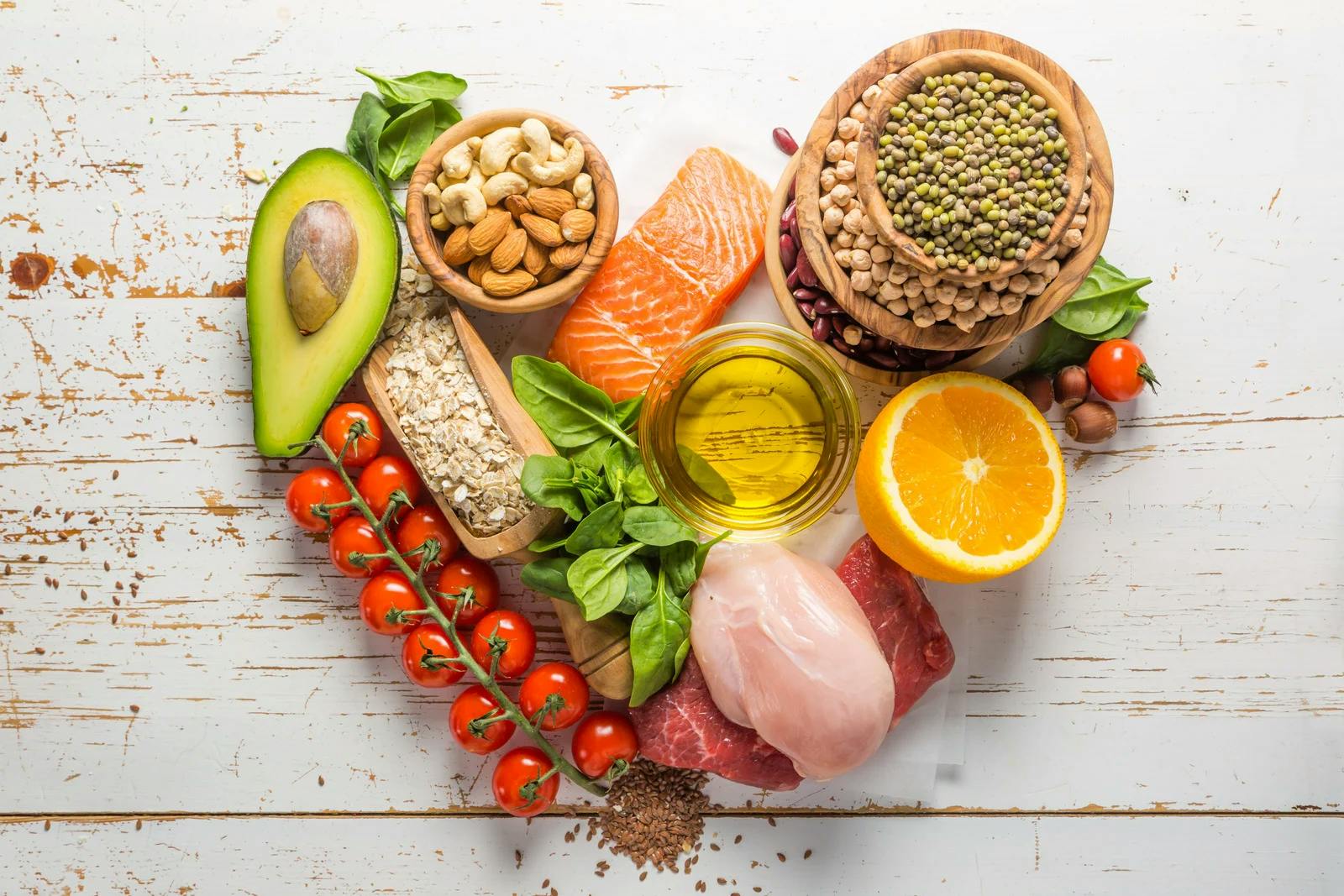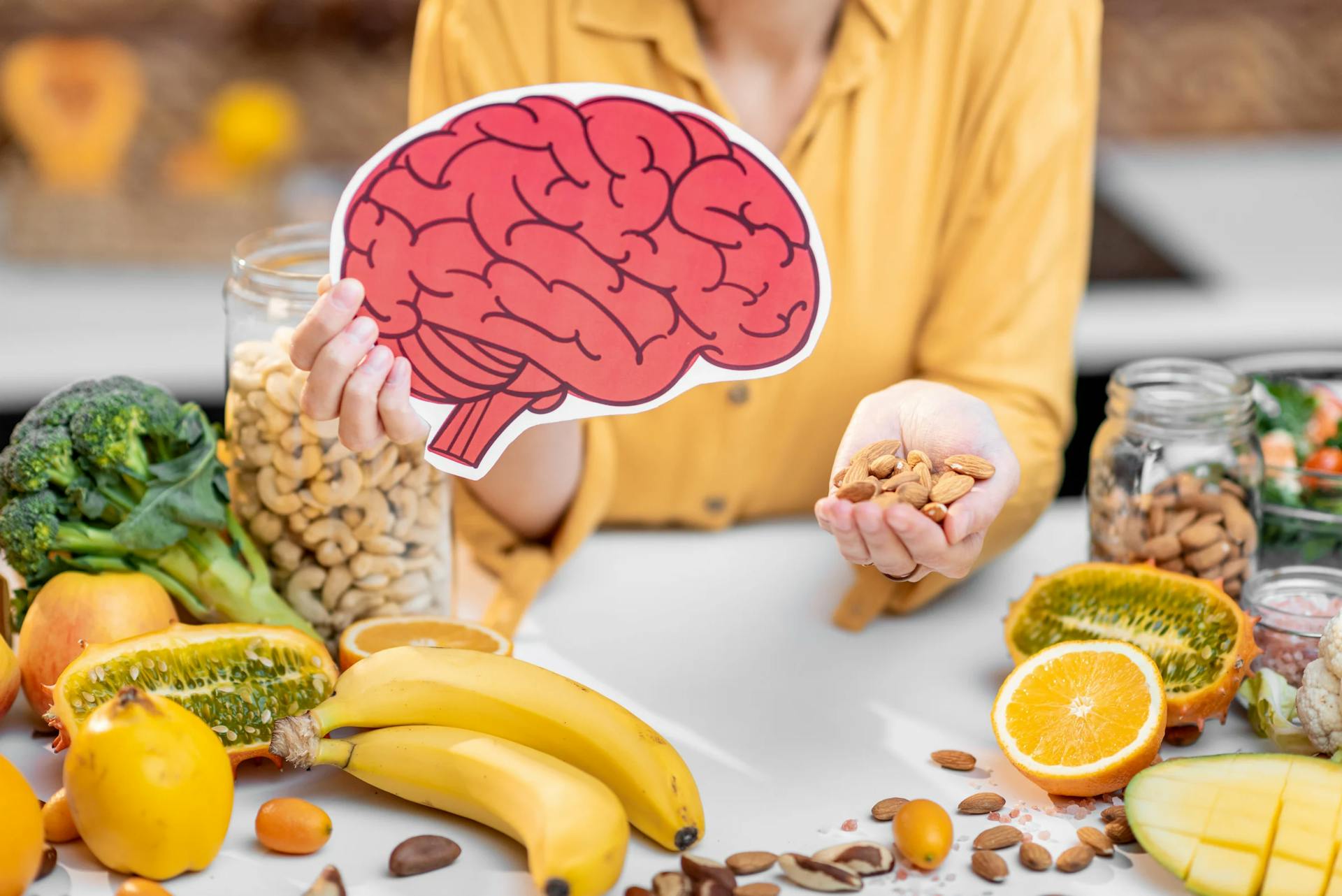Many mothers struggle with digestive symptoms that are usually labeled as "normal". Gas, bloating, constipation and cramps are some of the most common complaints I hear from women of all ages. If you are a mom, you can also probably relate to rushed meals and the stress of a crying baby while you are trying to chew your food and feeding your toddler at the same time. As hard as it seems, I promise you there are ways to reduce the stress over mealtimes and, once you learn more about the importance of the digestive process and how it can improve your overall health, you can focus on small changes to improve your symptoms, and I can say this by my own experience as a mother to four little children - I've been there! Digestion is an essential process for a healthy life. It has numerous impacts on other systems of our body, from the production of hormones to cardiovascular and immune issues, the detoxification process and the health of our brain. I'm going to explain a little more about each of these consequences, and I hope by the end of this post you can have a better understanding of this beautiful process we call digestion.
How Digestion Impacts Your Hormones
Proper protein and fat digestion are necessary for healthy hormone production, and this is a crucial part for our health as moms. Our lives are filled with hormonal changes, which influence our mood, energy and wellbeing. Did you know that protein digestion starts in the stomach, and if this process is not working well, the body won't have what it needs to make hormones? For proper protein digestion we need pepsin - an active digestive enzyme converted from pepsinogen, and other protein-digesting enzymes, which are produced by the pancreas. Consuming good quality proteins in the diet is essential for hormone production, but the process of digesting these proteins is what really will put them to good use. It all starts with good choices in your diet, focusing on a parasympathetic nervous system state during meal times (which can be taking a deep breath and saying a prayer before eating) and chewing your proteins properly so they can be broken down and absorbed. Fatty acids (the healthy fats) also require good liver and gallbladder function in order to break down the fats and to manage inflammation properly, so fat digestion is also essential for hormone production. For proper fat digestion we need good quality bile, a healthy liver to produce this bile, and a healthy gallbladder to store and recognize when to deliver it, in order to emulsify the fats in the chyme. Enjoy a variety of animal protein sources such as grass fed beef, chicken, eggs, bone broth, milk, and plant protein such as nut butters, beans, legumes and seeds, to name a few.
How Digestion Impacts Your Immune System
When we talk about immunity we need to reinforce the importance of removing stressors and strengthening the defenses. For example, when a person with a food sensitivity keeps eating the foods that trigger reactions (hello dairy and gluten!), the mucosal lining of the digestive system is attacked and gets inflamed. It can become permeable over time, allowing pathogens into the system. It is also important to have good bacteria in the gut and also help to heal this mucosa and we get it by eating micronutrients like zinc and B vitamins, plants like marshmallow root, slippery elm and ginger, also drinking enough water with the correct amount of electrolytes, consuming probiotics and prebiotic fibers, supporting healthy bowel movements. Since the liver and gallbladder are also important organs for digestion, supporting them is essential for elimination of waste materials and immune products, and also for complement protein production. For a healthy immune system we need to heal the intestines and work on having good bacteria in the gut, take steps towards slowing down to eat, focusing on a parasympathetic state (rest and digest), preparing the body for the digestive process, and produce enough HCl (hydrochloric acid) to break down and disinfect the food properly, this is why it is important to include in your diet foods that support the intestines and HCl production (like zinc rich food sources).
How Digestion Impacts the Health of Your Heart

This might be a surprise to learn, but impaired digestion and leaky gut increase the chances of developing arterial plaque and heart disease, because it allows bacteria and other pathogens into the bloodstream. Also, proteins and fats - which are essential to a healthy heart - have to be properly digested in order to support the cardiovascular system. With proper digestion we can have the cardiovascular system supported once the body is properly absorbing nutrients from proteins and fats. Once digestion is working optimally, we can tackle other issues that can also have an impact on cardiovascular health such as blood sugar issues (pre-diabetes, diabetes) and fatty acids (healthy heart and cells). Digestion is usually the #1 foundation to be prioritized in clients who want to improve their cardiovascular symptoms, since it is essential for absorption and delivery of nutrients to the body. Without proper digestion, all the beautiful components of a nutrient-dense and properly prepared diet won't do their job. Specifically for the cardiovascular system, proper digestion of proteins (proper breakdown of amino acids like carnitine and taurine) and fats (liver and gallbladder) will support a healthy heart by making those nutrients available to the body. Proper stomach pH is also important for calcium absorption and also digestion of B vitamins, and proper flora in the bowel will help produce vitamins like B1, B2, B12, and K2, which are also critical for cardiovascular health.
A note on cholesterol: There is plenty of research available reviewing the dietary recommendations about cholesterol. Did you know that cholesterol from diet does not significantly affect the blood cholesterol levels in most people, and that fatty acids are the most important source of energy for the heart? Isn't this amazing? So we do need healthy fatty acids like eggs, because they will provide healthy fats and also protein that is supportive of the cardiovascular system. Cholesterol is needed for the production of hormones like estrogen, progesterone and cortisol, and is also necessary for building and maintaining membranes, to make bile and help with fat digestion, and it works as a precursor to vitamin D.
How Digestion Impacts Detoxification
The body works on detoxification on a daily basis: sweat, bowel movements, urine, even sleeping and breathing are all ways the body uses to detoxify. This is why constipation, lack of sleep and dehydration interfere with the natural process of toxin removal from the body. Cleanses and detox protocols have been very popular lately, especially for women, but we need to make sure we are supporting the natural detoxification processes and check if all of the systems are working optimally before thinking about starting any of such programs. This means consuming a variety of nutrients in the diet, being mindful during meals and avoiding eating on the go. Supporting the liver and healthy bile production is essential, since bile carries toxins out of the body. All elimination pathways must be open for optimal detoxification processes. Both the digestion and the detoxification processes need a parasympathetic state to work optimally, this is why it is important to find ways to lower stress and improve sleep quality, since the body works hard on detoxification while we sleep. Breathing and stretching exercises can also help with the detoxification process. Also, adjusting the diet by adding more whole food and nutrient dense items such as beets, dandelions, asparagus and artichokes, and making sure that we are adding electrolytes to water, since toxins can deplete minerals in the body.
How Digestion Impacts Your Brain

By now you have probably noticed how I have emphasized the importance of focusing on a parasympathetic (rest and digest) state in order to have optimal digestion. This is because our nervous system is directly connected to our digestive system. The parasympathetic nerves allow us to stimulate saliva, slow the heartbeat, stimulate the activity of the stomach, gallbladder and intestines. If we are stuck with chronic stress, body functions such as digestion and detoxification will be impaired, generating a cascade of other implications, producing symptoms that make us uncomfortable and unwell. If we need our nervous system to be functioning well in order to have our digestive system working well, we also need the other way around. The microbiome is responsible for producing neurotransmitters and chemicals that affect the brain. According to the Johns Hopkins Medicine website, there is now research with evidence that "irritation in the gastrointestinal system may send signals to the central nervous system that trigger mood changes." It's so important to consume good protein and fat sources and slow down before meals in order to have all the best nutrients properly absorbed and ready to be used by our nervous system.
I know that was a lot of information to take in, but I hope you are as encouraged as I am to make digestion work properly. As a friendly reminder, this was a general post for educational purposes, but if you'd like to have personal support tailored just for your situation, please remember to reach out to a practitioner (like me!) and have a bio individual plan based on your symptoms to start improving your health. Mothers have the potential to influence the whole family, so if we as moms take good care of our health, our children - and husbands - will have the best influence to follow!
References
Huizen, Jennifer. October 23, 2023. What to know about hormonal imbalances. Retrieved from https://www.medicalnewstoday.com/articles/321486
Nutritional Therapy Association, 2022. Immunity. Nutritional Therapy Association Student Guide, p. 68.
Frontiero, Laura. 2023. Unblock your internal drainage pathways for effective detox & more energy. Retrieved from: https://laurafrontiero.com/unblock-your-internal-drainage-pathways-for-effective-detox-more-energy/
Tindle J, Tadi P. Neuroanatomy, Parasympathetic Nervous System. [Updated 2022 Oct 31]. In: StatPearls [Internet]. Treasure Island (FL): StatPearls Publishing; 2023 Jan-. Retrieved from: https://www.ncbi.nlm.nih.gov/books/NBK553141/
Hopkins Medicine, n.d. The Brain-Gut Connection. Retrieved from: https://www.hopkinsmedicine.org/health/wellness-and-prevention/the-brain-gut-connection
Katsimichas T, Theofilis P, Tsioufis K, Tousoulis D. Gut Microbiota and Coronary Artery Disease: Current Therapeutic Perspectives. Metabolites. 2023; 13(2):256. https://doi.org/10.3390/metabo13020256
Fernandez ML, Murillo AG. Is There a Correlation between Dietary and Blood Cholesterol? Evidence from Epidemiological Data and Clinical Interventions. Nutrients. 2022 May 23;14(10):2168. doi: 10.3390/nu14102168. PMID: 35631308; PMCID: PMC9143438. Retrieved from https://www.ncbi.nlm.nih.gov/pmc/articles/PMC9143438/


